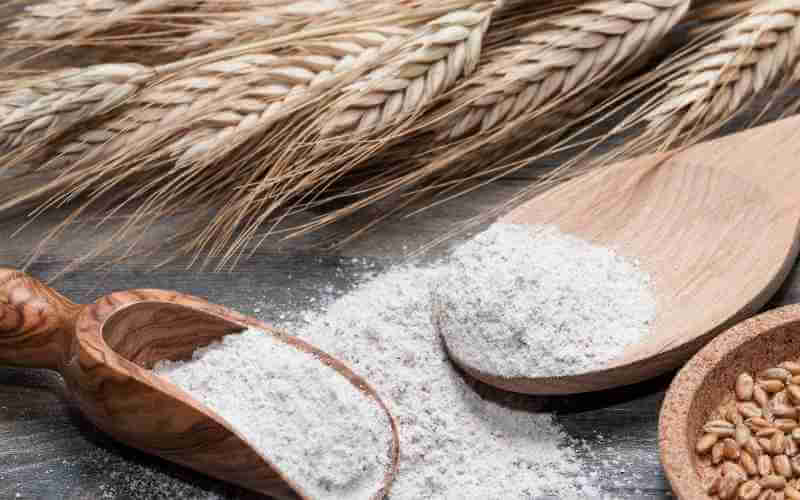It is another time to bake or make some desserts for your outdoor event, and you cannot always have it figured out, especially having every ingredient, you need to make your recipes.
Flour is almost irreplaceable in baking because it plays a vital role. However, there are so many kinds of flour and barley flour is one amongst many of them that is proven healthy for some reasons.
And now you do not have barley flour to complete your recipe, so you are curious: are there substitutes for barley flour? Well, there are varieties of flour that can replace barley flour.
So let us find out about them.
Contents
What is barley flour?
First off, let us know what barley flour is so you could find a suitable replacement for it.
Barley flour is flour that you can get from grinding barley into fine powder. This type of flour is commonly used to make flatbreads. However, apart from flatbread, you can use it to make barley bread and even desserts.
Barley flour is mainly also used to make food for infants and, of course, any other specialty that requires barley flour.
Above all, barley flour contains some relatable amount of gluten more than other flours that have a large amount of gluten. So, barley is most suitable if you want a small amount of gluten in your recipes.
So, this means that you replace other flours that are gluten-free or not with barley flour. However, if you react to even the slightest amount of gluten, then this is not a good idea. You can opt for other flour.
Many people can have barley flour and wheat flour in the same recipe to achieve the desired consistency. No wonder it can replace wheat flour in recipes that call for wheat flour. Many people use it to make pasta too.
Taste: barley flour complements many savory recipes with its slightly nutty flavor; however, it might not be the best option if you are trying to avoid nutty flavors in your recipes.
So let us see these excellent substitutes for barley flour
Substitutes for barley flour
1. Tapioca flour
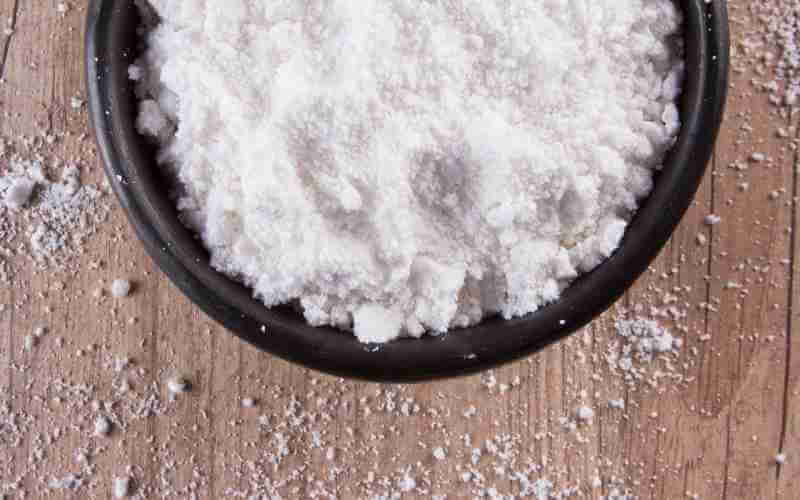
Tapioca would provide many benefits and still offer your recipe acceptable taste and consistency. Although tapioca flour contains more starch than barley flour, it is a great substitute for barley flour.
And like barley flour, you can get tapioca flour by grinding tapioca into fine powder and sieve to make sure you only have smooth flour.
Tapioca flour is more of a thickening agent. So, it would help you achieve a thick consistency in many recipes like soups, sauce, and even chili. And even if you want your dough to be thick, tapioca flour is a good place to start with.
So, replace your barley flour with tapioca flour when you are ready to get your meal done! But there is a slight difference: tapioca flour is gluten-free, and if you want flour with some gluten in them, continue reading for the next option.
2. Bread flour
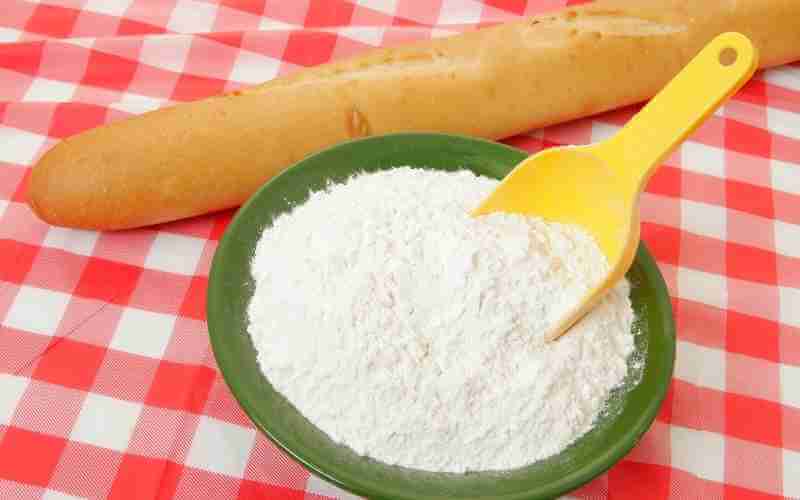
Overall, this is the best substitute for barley flour. And although bread flour has more gluten content than barley flour, it would fit well for recipes that call for barley flour.
Bread flour has also the right amount of protein that is suitable for baking, so it works great when you use it to bake bread.
Flour is very much rich in color compared to cake flour. And it has an acceptable texture that would improve the overall appearance of your recipe.
So when it is time to bake and you do not want to disappoint your household, even when you are short of the right flour. Use bread flour.
3. All-purpose flour
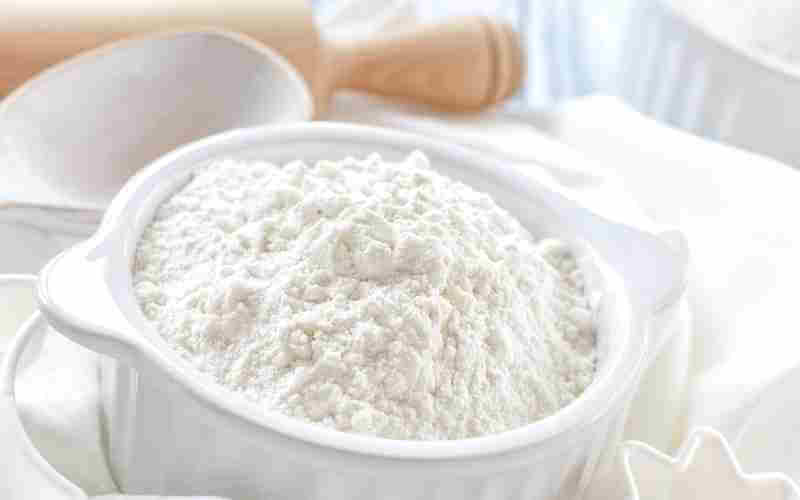
All-purpose flour is exactly what its name says. This flour is versatile and can sit in many recipes, whether baking, making desserts, or simply adding in any sauce.
And since you might want some relatable amount of gluten, all-purpose flour has it all. All-purpose flour contains about 8 to 11 percent of gluten.
All-purpose flour is gotten from hard red wheat. This flour is commonly used in the US; however, it has gained substantial ground in many cuisines and the baking world.
In baking, you can use all-purpose flour to bake muffins, cookies, biscuits, and even bread. That is how versatile all-purpose flour is. So, when it is time to bake with barley and you cannot have it, use all-purpose flour.
4. Brown rice flour
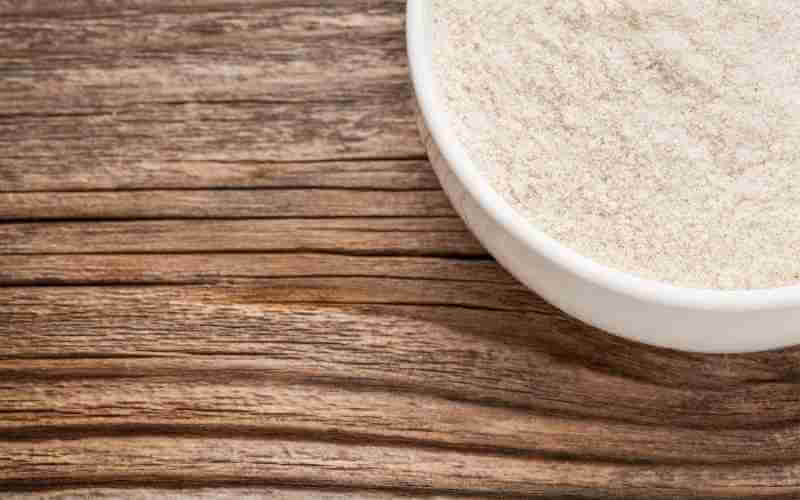
Another versatile flour that many people cannot have enough of is brown rice flour. Brown rice is gluten-free however; it has many qualities that make it a great substitute for barley flour.
Brown rice flour has a nutty flavor that can fit in many recipes that calls for it. And brown rice flour is nutrition-filled, and it would offer you health benefits when you incorporate them into your recipe.
So if you wish to have some nutty flavor in your meal, then do not think twice, brown rice flour would do your recipe the justice.
However, the downside is that the flavor seems overpowering, so reduce the way you add the brown rice flour in your recipe.
5. Whole-wheat flour
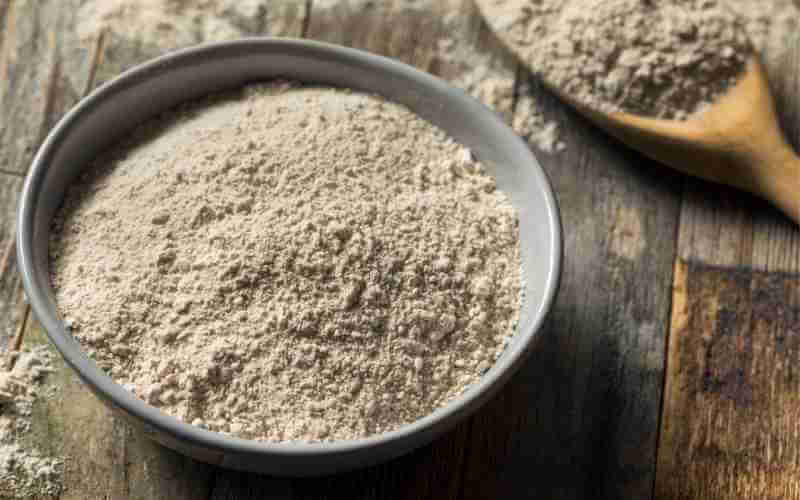
Also known as whole meal flour, whole-wheat flour is the powdery substance that is gotten from whole grain of wheat.
Wheat flour is flour that can replace barley flour in many recipes. Whole-wheat flour, like barley flour, has a slightly nutty flavor that adds potency to baked foods or any meal you use it in.
Many people use whole-wheat flour to bake whole wheat bread, cookies, and other foods. The whole-wheat flour is such a wonderful source of protein and fiber, so it will offer good nutritional values to your recipe.
6. Cake flour
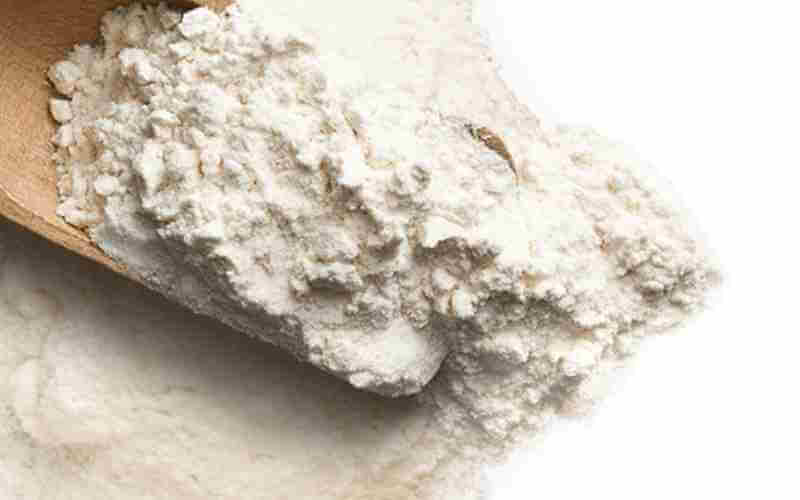
Why cake flour? Well, cake flour is commonly used for baking. The flour is gotten from ground winter wheat. Cake flour is filled with protein. And so, it would offer nutrients to your meal.
When you want to achieve a light texture when baking, or if you want to end up with some fluffy bread, then cake flour is suitable for the task. This is because it has a lot of starch in it. Many people use cake flour to bake biscuits, pastries, and, of course, cake!
Cake flour is gluten-free and would be a perfect substitute for gluten-free recipes. Cake flour is a great option if you are looking forward to making the best pastries or dough.
7. Almond flour
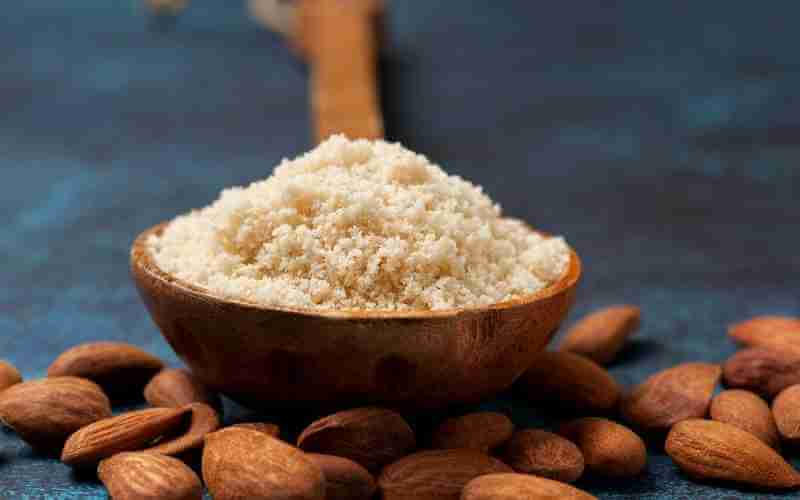
Almond flour might seem out of the line, especially since it has a fragrance that seems overpowering. However, almond flour, with its slightly nutty flavor, would improve the taste of your meal. Above it offers nutrition to any recipe you use it to bake too.
So, if you do not have any of the above substitutes, you can use almond flour, if you have it handy.
Conclusion
Flour is one ingredient that you most likely would not replace when baking, so we advise you have some varieties of flour handy so that when you run short of one, you can use another.
If you react to gluten-free content, use brown rice flour and tapioca flour. Finding the right substitute for barley flour is not such a laborious task.
And now that you have this guide, you could substitute your barley flour in a pinch. We hope you can bake with the right flour.
